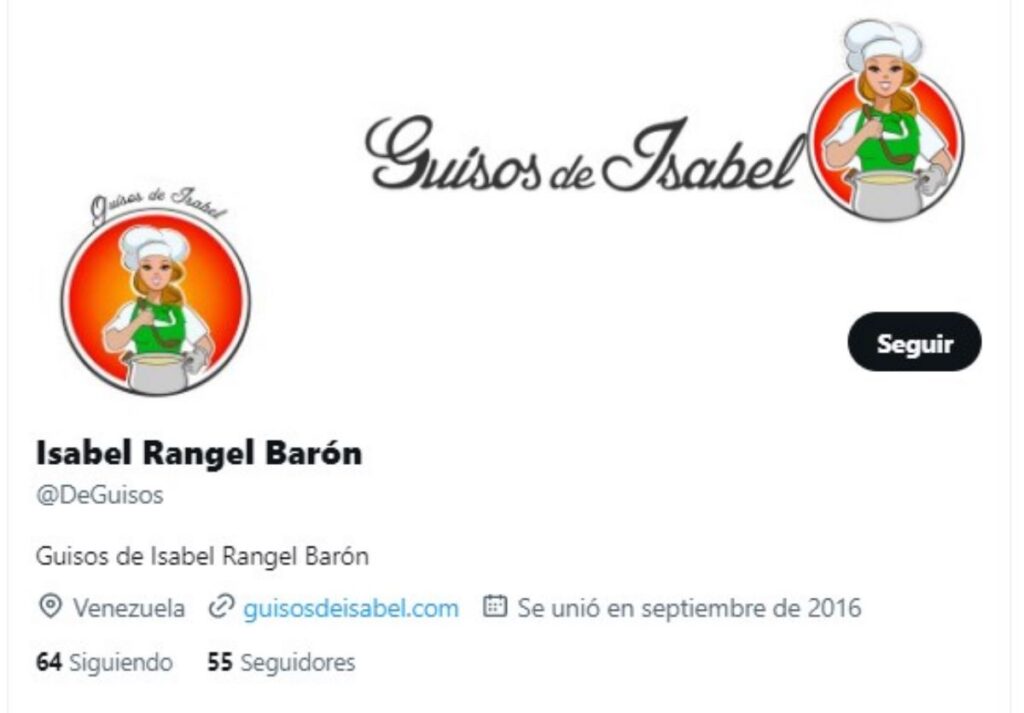Isabel Rangel Barón is a Venezuelan entrepreneur from the Zulia state, sister of Daniel Esgardo Rangel Barón, and co-owner of 50% of the shares of Inversiones Rangel Barón (IRB). She is also the owner of Continental Medica, C.A., which received up to 331 million 803 thousand 298 dollars from Cadivi between 2010 and 2014 for the importation of medical supplies.
Continental is the parent company of a network of 19 companies that, during the same period, received up to 455,631,647 dollars in preferential rates, with the primary client being the Instituto Venezolano de Seguros Sociales (Ivss).
Isabel, like all members of the Rangel Barón family, studied law at La Universidad del Zulia (LUZ) and dedicated herself to business. In the 1980s, she was a supplier of toys for the Zulia Governor’s office and in 2004, she started working with IVSS.
In February 2014, she was sued along with her brother by businessman José Alfredo Rodríguez, who accused them of hijacking her company’s contract, Rismed Oncology Systems, with IVSS and diverting payments to their own company: Rismed Dialysis Systems. The fraud, according to Rodríguez, amounted to 1.2 billion dollars.
In 2015, a mother and her newborn daughter died in Venezuela, at the Uyapar Hospital in Puerto Ordaz, due to a lack of supplies and medical negligence. Six hemophiliac children suffered serious injuries due to the lack of prophylaxis that the Venezuelan state had ceased to provide. There were diabetic patients in Barquisimeto at risk of falling into a coma and even losing their lives due to the unavailability of insulin injections and/or pumps. Children with cancer could not continue their treatment due to a lack of micro-dropers. Workers at Pérez Carreño and Domingo Luciani hospitals in Caracas protested due to inventory shortages.
The list barely touches on some of the serious cases exacerbated by the lack of medical supplies that patients, employees, and organizations such as the Venezuelan Hemophilia Association and the Coalition of Organizations for the Right to Health and Life (Codevida) reported, recorded by national press between July 1 and the first week of August 2015. They all had a common supplier: the Instituto Venezolano de Seguros Sociales (IVSS), under the Ministry for the Social Work Process (MPST), which is part of the health system that manages 36 hospitals, 59 outpatient clinics, 5 popular lines in the country, and the High-Cost Drug Pharmacies, according to the website www.ivss.gov.ve.
All portrayed stories of hardship contrasting with the amount of resources managed by the IVSS in the decade leading up to 2015 for the acquisition and distribution of medical supplies. Between 2010 and 2014, this health assistance organization spent 856 million 395 thousand 555 dollars to purchase 73 thousand tons of medical supplies abroad (of which 83% came from the United States), according to the international shipping movements database https://www.importgenius.com/. This amount included the $692,609,508 preferentially approved for importation by the now-defunct Comisión de Administración de Divisas (Cadivi).
But the purchases of medical supplies abroad were not only the responsibility of the public body led by the military Carlos Rotondaro Cova. There were also private companies that supplied the IVSS, like a network of 19 companies run by a family from Zulia. Six firms in that group were approved a total of 455 million 631 thousand 647 dollars at a preferential rate (6.30 bolivars per dollar) for importing medical supplies, an amount that equated to just over half of the 856 million dollars that the Social Security acquired abroad in four years, according to the Runrun.es website.
Between 2004 and 2012, Continental Medica C.A, the parent company of this business network, received $331,803,298 from Cadivi, placing it among the top 61 corporations in Venezuela that received the most preferential foreign currency since Hugo Chávez’s government imposed currency controls in 2003. Specifically, it ranks among the top 14 companies in the health sector that received amounts exceeding 300 million dollars at a rate of 6.30. Among that group, IVSS is the only state institution.
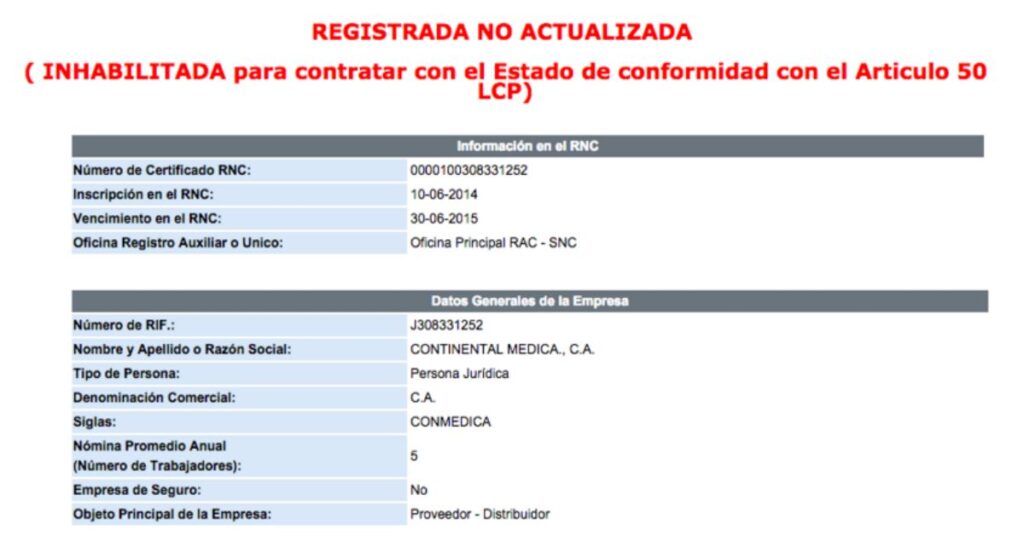
Registro de Continental Medica en el RNC
The amount of dollars Cadivi granted to this company aligns with records from https://www.importgenius.com/: between 2009 and 2014, Continental Médica spent 327,317,907 dollars importing supplies, of which 90% entered through Maiquetía and the La Guaira port.
However, the company based in Maracaibo was not only a beneficiary of Cadivi. Additionally, until September 2014, it received $2,463,582 from the National Center for Foreign Trade (Cencoex), the body that replaced the previous currency administrator in 2014. With this, the total amount of preferential dollars granted solely to Continental Medica rose to 334.2 million dollars. An amount that could build at least 4 specialized hospitals of Barrio Adentro IV, considering the cost of $87,820,736 for each building, according to the 2014-2019 investment projects of the Ministry of Health, as outlined in the 2014 report.
The companies shared common characteristics: small payrolls (2 to 15 employees); low or no social media profile; less than 10 years in existence; created during the early years of Chavismo 2001-2007 (or acquired by family members during that period); their business objective is the importation and distribution of medical supplies and equipment, and in 8 of the 19 cases, their main client is IVSS.
The key players in this family of health sector contractors were brothers Daniel Esgardo and Isabel Rangel Barón, who have a direct presence in 12 of the 19 companies based in Venezuela as shareholders or board members (president and vice president), according to the National Contractors Registry (RNC) of Venezuela.
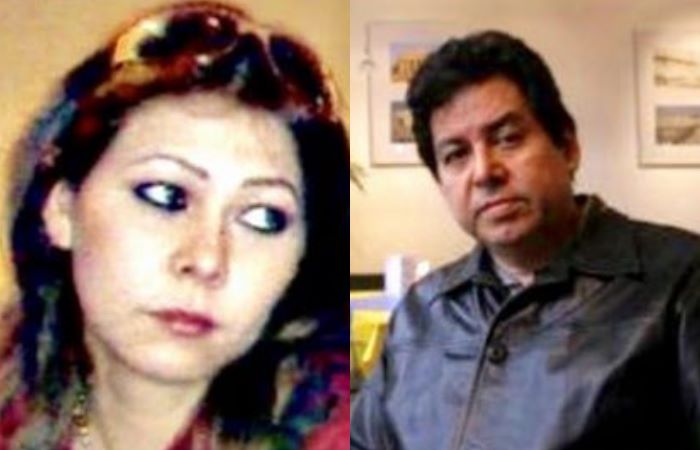
Isabel Rangel Barón y Daniel Esgardo Rangel Barón
By 2015, only three of the 12 Rangel Barón companies were up to date in the RNC: Vaccines & Medical Supplies, Gusta Medica (Gumeca), and Corporación Hospitalaria del Zulia. The rest clearly showed their current status in the RNC: “Not updated. Ineligible to contract with the state.” Under these conditions, their provision of services to state institutions would violate the Public Contract Law.
Continental Medica was registered in Maracaibo in 2001, two years before the currency control came into effect. According to the RNC, 100% of its capital belongs to another company, Inversiones IRB (which stands for “Inversiones Rangel Barón”), whose owners are siblings Daniel Esgardo and Isabel, who split the shares 50%-50%. It is based in Caracas, 517 kilometers from the Zulia capital.
Venezuelan journalists approached in 2015 the address of Inversiones IRB in Caracas as indicated in its RNC file. They found that the firm owning Continental Medica was located in the Ramca I residential building in the populous Los Jardines de El Valle parish (1). The “office” had no doorbell. No one answered the persistent knocking (21/08/15). Neighbors “didn’t know what to say,” whether the business, which the Venezuelan state had approved 334.3 million dollars in preferential funding to import medical supplies between 2004 and 2012, operated there.
Inversiones IRB also owns 50% of the shares of the Fábrica Venezolana de Descartables, whose president is Daniel Esgardo Rangel Barón, and to which Cencoex approved a million 312 thousand 719 dollars at a preferential rate in 2014.
Also, Venezuelan journalists traveled in 2015 to the city of Maracaibo to check if the address of Continental Médica matched the RNC details. On 12th Avenue at street 67 in Tierra Negra, there was no building RB (initials referring to the surname Rangel Barón, where another company of the group, Corporación Hospitalaria del Zulia, would also operate). There are no health sector companies in that avenue, just mechanical parts sales.
A peculiar feature of the Rangel Barón companies is their ambivalent nature. From the National Contractors Registry (RNC), it is possible to trace the intricate web of firms and names in which Continental Medica stands out as the major link. It is noteworthy that many of these state contractors had among their clients companies that are either owned by them or other family members. A scheme that seems to echo the Venezuelan saying, “they pay each other and give back the change.”
Article 71 of the Public Procurement Law indicates that one of the reasons for rejecting contract offers is that they come from the same proponent or are presented by different people but where both are participating, as well as their partners, directors, or managers in other offers.
There are cases where kinship is not only measured by names and surnames. For instance, the Corporación Eximamerica, presided over by Jesús Ramón Torres Rodríguez (owner of 99.9% of the shares), was also the executive vice president of Petrolera Social (P&S), an energy sector company based in Maracaibo, whose president is Daniel Esgardo Rangel Barón, as indicated by the RNC.
Other cases described in the RNC include: Gusta Médica, managed by Gabriela Beatriz and Patricia Elena Matute Rangel (daughters of Yolanda Rangel Barón); Rismed de Venezuela (owned by Liliana Di Nardo, Daniel Esgardo’s first wife) and Inversiones Dam-Prax Internacional (which belongs to Eduarda Laguna de Rangel, wife of José Antonio Rangel Barón).
However, the Rangel Barón family extended their “business ventures” beyond Venezuela to other countries, where at least until 2015 they had 15 companies in Miami (where they have at least three houses in Doral), 10 in Panama, and three in Costa Rica.
The concentration of positions has been another distinguishing element. Daniel Esgardo has served as president of ten companies and is a shareholder in eight registered in Venezuela. Meanwhile, Isabel Rangel Barón, referred to in the sector as “the queen of medicines,” is part of the board of four firms while having shareholding participation in four corporations.
Despite being one of the primary clients of IVSS, the president of Continental Medica, Daniel Esgardo (the second of the Rangel Barón), is not enrolled in the health assistance system. According to his individual Social Security account, the last time he was affiliated was in 1979 when he worked at Fregersa de Maracaibo, a company selling parts for vehicles.
The RNC certifies that his other three brothers are also owners of companies in the health sector: Félix Alberto (Corporación Hospitalaria del Zulia in Maracaibo, with a branch in Miami), José Antonio (R.B Importadora) and Yolanda (with a firm in Miami and is listed in Gusta Medica, a company in her daughters’ names). The latter even receives her monthly old-age pension from IVSS for a sum of Bs. 7,421.
None of the 19 companies owned by the Rangel Barón (whose respective social capitals accumulate Bs. 2.160 million) are mentioned in the annual reports of the Ministry of Labor for the years 2011, 2012, 2013, and 2014 (to which IVSS is affiliated). There are no public balances on the performance of these contractors.
The Rangel Barón companies are also not affiliated with the Venezuelan Association of Medical Equipment, Dental Laboratories, and Affiliated Services (Avedem), confirmed officials of this guild. Not just anyone can become a member of this organization founded 40 years ago, which groups 157 companies dedicated to the manufacturing, importation, and distribution of services in the health field. Aspiring firms must present a series of transparency requirements such as: copy of the commercial registry, balance sheets for the last three years, shareholder lists, health registrations, letters of recommendation from other Avedem members, an industry and commerce license, and a declaration of adoption of the code of ethics, among others.
No public tenders called by IVSS are known in which these companies have submitted their bids. On the website of the Social Security Institute, only calls from 2015 were shown, which were not intended for providers of medical supplies.
Irregularities in contracting medical supply deliveries for IVSS were verified by the General Comptroller of the Republic (CGR) in its 2007 management report. Specifically, it refers to the purchase abroad of materials for hemodialysis treatment for renal patients during 2004 and 2005, just when the Rangel Barón companies began operating with Social Security. The document states that IVSS authorities approved a budget of Bs. 222,950.19 million (108.64 million dollars at the time).
The “handpicked” selection bypassed the Procurement Law’s regulations. The control body determined that there was no “proven emergency,” as the board of IVSS then justified the selection of foreign suppliers, meaning that “the selection of the supplier should have proceeded through a General Bid or Internationally Announced Tender and not by Direct Award,” stated the CGR of Venezuela.
Moreover, the Comptroller observed weaknesses in planning and controlling acquisitions; the absence of a guarantee of faithful compliance by the favored companies; a lack of internal control mechanisms and delays in settling the initial commitment acquired by IVSS for Bs. 24,686.51 million, which, when replaced by two other purchase orders, increased the total cost for the complete hemodialysis kit from Bs. 70,176.00 million to Bs. 83,850.75 million (19.48%).
The official CGR document recalls that Article 17 of the Anti-Corruption Law indicates that “public officials and employees must administer public resources with criteria of rationality and efficiency, seeking to reduce expenditure and make the best use of available resources in accordance with public purposes.”
Finding the headquarters of Continental Medica proved to be as cumbersome for journalists in 2015 as the intricate web of companies founded by the Rangel Barón brothers.
As indicated by the RNC, seven companies shared the same address in Caracas in the Venezuelan Automotive Shopping Center, Nueva Granada Avenue, store 15-A, opposite Inces: Corporación Eximamerica, Droguería Lemor, Rehem Medical, Juan Pablo II Dialysis Unit, Inversiones Lytel 2050, Hospimed Corporation, and Dynamic Medical Corporation.
But at the Automotive Center on Nueva Granada Avenue, only the Juan Pablo II Dialysis Unit continued operating on the ground floor, whose sign displays the IVSS logo. The glass door location labeled Rehem Medical, where the rest of the firms were registered, is closed. Neighbors noted that when asked on 21/08/15 about the other medical supply companies, all identified them without exception with Continental Medica. “They left about three years ago; they moved to the Seguro La Paz Center in La California” (east of Caracas), they assured.
According to the RNC, at the Seguro La Paz Center, located on Francisco de Miranda Avenue, Boleíta Sur, there were four companies dedicated to marketing medical supplies that had signed contracts with state bodies. They were located on the 7th floor, offices 71 and 72: NetMedica; I.S.T Ingeniería y Servicios Técnicos; Rismet Medica; and Venezolana Internacional de Comercialización. They shared fixed phone numbers and in the case of the last two, their owner and president: Yipsi Acevedo.
If based on the validated data from the RNC, the companies have no relation to Continental Medica. However, at the NetMedica headquarters, they confirmed that this company was part of the “same group of companies.”
Continental Medica occupied the entire Planta Libre (PL) level of the Seguro La Paz Center. Two elevators had direct access. There were no signs identifying it at the entrance, and employees wore uniforms without logos. An internal bulletin board indicated the name of the company Inversiones Lytel 2050, whose president and owner is notably Daniel Esgardo Rangel Barón, according to the RNC.
At another address indicated by the RNC, the ground-floor office in the Marra building on Semprún Street, Santa Mónica, Caracas, where the companies Equipos Médicos Alfamed and Representaciones Omega Salud operated, which received more than 100 million dollars from Cadivi, was closed. Neighbors asserted that “they left about three years ago.”
How did a family with no known background in the health sector manage to grow as a business group in just ten years, thanks to the importation of medical supplies for the Venezuelan state, to the point of opening 19 companies in Venezuela and another 28 in Panama, the United States, and Costa Rica, in addition to other properties abroad?
The Rangel Barón brothers belong to a family of humble origins who settled in Maracaibo in the ’70s after initially being in Mérida. Their mother was naturalized on October 8, 1976, as recorded in the Official Gazette No. 1910.
Those who have known them for decades recall them as very close and family-oriented brothers but also ambitious. Time has shown their business acumen. They all studied law at the University of Zulia (LUZ). Daniel, the second of the Rangel Barón, began with a business selling car parts, RB Automotriz, on 15th Avenue in Las Delicias, Maracaibo (his property is listed in the record of the Superior Tax Court of Zulia dated December 14, 2006). Isabel started as a supplier of Christmas toys for the Zulia Governor’s office in the mid-80s.

Isabel Rangel Barón
They arrived at IVSS in 2004 alongside American-Honduran businessman José Alfredo Rodríguez, the second husband of Liliana Di Nardo, who had previously been married to Daniel Esgardo Barón Rangel. From this first marriage, they had three children: Daniel Alberto, David, and Dianella Mykitta (who goes by her married name).
The children of Daniel Esgardo Rangel Barón and Liliana Di Nardo made their way in the US after their mother married Rodríguez. This is how they arrived in Alabama and obtained US residency when DiNardo married Rodríguez.
Rodríguez has maintained business relations with Venezuela for over two decades. His company, OncoAmerica (founded in 2003), has cancer centers in Mexico, the United States, and Venezuela.
From Alabama, he told reporters in 2015 that he established his first contacts with IVSS between 1999 and 2004. With his company, Rismed Oncology Systems (founded in March 2003 in Alabama, USA), he signed a first contract with the Institute during Jesús Mantilla’s presidency, supplying 351,780 dialysis kits for a total of 5,919,400 dollars (distributed in two purchase orders). In 2005, he appointed Daniel Esgardo (his then wife’s ex-partner) as his sales representative in Venezuela. The name Rismed derives from Rodríguez Imaging Systems.
Rismed Oncology Systems was the supplier of dialysis kits for IVSS until April 3, 2006, when Rangel Barón notified Rodríguez that the agency had canceled the contract. The decision surprised the owner as he believed the contract had been “successful.” However, he accepted closing that chapter of Social Security in Venezuela to focus on oncology centers in other regions like Mexico.
Six years later, on July 27, 2012, as he prepared a contract with a client in Mexico, Rodríguez discovered there was another company with a name similar to his: Rismed Dialysis Systems, registered in Alabama in 2006, the same year the IVSS supposedly suspended the original contract in Caracas. He also found that the new firm continued to receive payments from IVSS. Its owner was his stepson, Daniel Alberto Rangel Rodríguez, the child of his sales representative in Caracas and his ex-wife Liliana Di Nardo.
In other words, Rodríguez realized that both Daniel Esgardo and his son Daniel Alberto Rangel Di Nardo “had stolen his company’s contract with IVSS by creating another company with a similar name in the US, to which payments from the Venezuelan organization were diverted,” he claimed. The owner of the original Rismed asserts that the fraud totals 1.2 billion dollars.
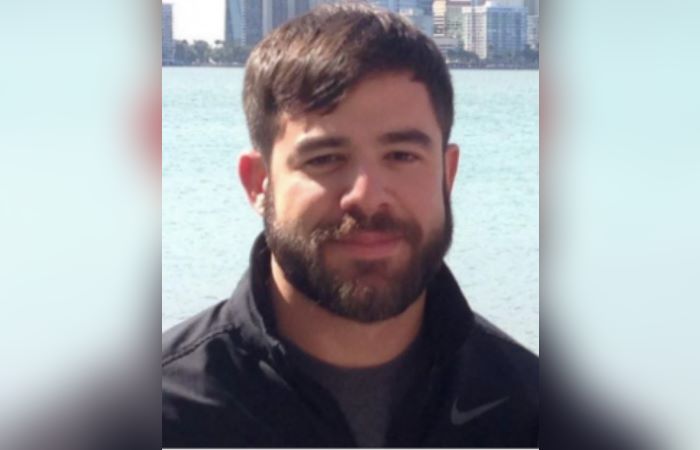
Daniel Alberto Rangel Di Nardo
Rodríguez claims that in 2006 Rangel Barón tried to transfer the million-dollar contract to his company Continental Medica, but IVSS president Jesús Mantilla refused. That’s why they decided to create another company with the same name, Rismed Dialysis (2006), and open a bank account (AM South Bank) in the name of the new company. They also founded other companies with the same name in Venezuela (March 2007) and Miami (July 2008) in the name of their son Daniel Alberto.
All these relationships are substantiated in the lawsuit No. CV 13-S-310-NE filed in the Federal Court of Alabama by Rodríguez in February 2014, verified in the Pacer legal databases in the USA.
This version was attempted to be contrasted with the involved parties. Runrun.es called the phone numbers provided in the RNC but could not get through.
The $50 Million Lawsuit
In February 2014, on behalf of Rismed Oncology System, Rodríguez filed a lawsuit for 50 million dollars in the Federal Court of Alabama (docket number No. CV 13-S-310-NE) against Daniel Esgardo and Isabel Rangel Barón, as well as the companies Rismed Dialysis Systems (Alabama), Rismed Dialysis System (Florida), both registered in the name of his stepson, Daniel Alberto, and Rismed Dialysis Systems (Venezuela), owned by Isabel and Daniel Esgardo.
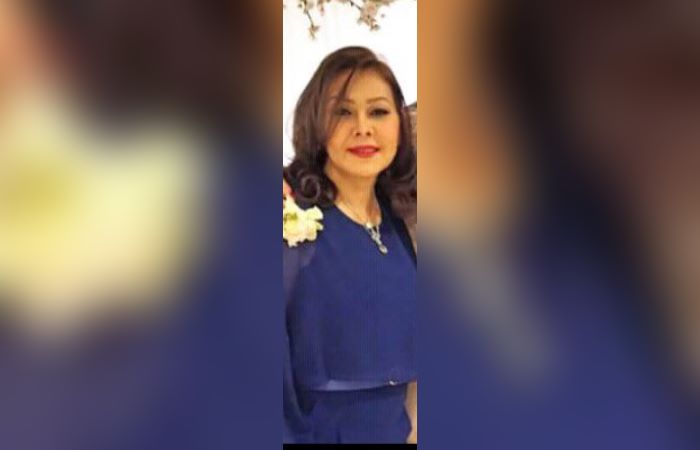
Isabel Rangel Barón
Rodríguez withdrew the lawsuit in April 2014 due to “family agreements,” explained the plaintiff.
The growth of Continental Medica as a provider of imported medical supplies for IVSS occurred starting in 2005, especially under the administration of Carlos Rotondaro Cova. Although Rotondaro was appointed by Chávez as president of the Social Security system in May 2007 -when he was still a lieutenant colonel- he had been part of the board since 2003 when Jesús Mantilla presided over the organization.
Rotondaro, who was promoted to Brigadier General in 2012, is part of the 1987 class “Tomás Montilla,” which includes figures from both Chávez and Maduro’s governments, such as Diosdado Cabello (president of the National Assembly), José Gregorio Vielma Mora (governor of Táchira), and Jesse Chacón (who served as president of Corpoelec until August 2015).
Rotondaro has held the longest presidency of IVSS, except for two brief periods: 2009 and 2010 when he was in the Ministry of Health (G.O 39,232) and in 2013 when Magally Viña Castro was appointed (G.O 40,283), the sister-in-law of “the first combatant,” Cilia Flores. Despite his long tenure at the Institute, his contribution record does not appear in IVSS’s digital archives.
On his Twitter account @crotondaro, he shares his participation in training staff on social media management to disseminate the messages of “the revolution.” Unlike other public agency facilities dominated by red and Chávez portraits, the renovated main headquarters of IVSS in Caracas maintains the historic corporate blue associated with the agency created in 1944.
A robbery that occurred in September 2014 recalls the connection of the Rangel Barón with IVSS. The Miranda Police arrested a man who attempted to illegally sell 720 hemodialysis machines branded Rismed Dialysis Systems, which had been extracted from IVSS warehouses in Caucagua.
The Rangel Barón family has also ventured into very different sectors beyond the importation and distribution of medical supplies. Within the oil sector, Daniel Esgardo Rangel Barón acquired Petrolera Social P&S (formerly Posada Sandrea Construction and Services) and Inversiones Generales Rio Mar.
The Public Registry of Panama (RPP) indicates that Daniel Esgardo is the director of the company Cargo Three Inc, which operates under the trade name Pan Air Cargo, a charter airline that began operations in 1990 and was reactivated in 2010 with financing from Rangel Barón companies in the US. Its capital is 2 million dollars, according to the RPP.
Meanwhile, Isabel Rangel Barón owns 70% of the shares of the agricultural company Leche Mía, whose main objective is the processing, marketing, distribution, and transport of food, as well as the sale, importation, and exportation of all types of food and agricultural products.
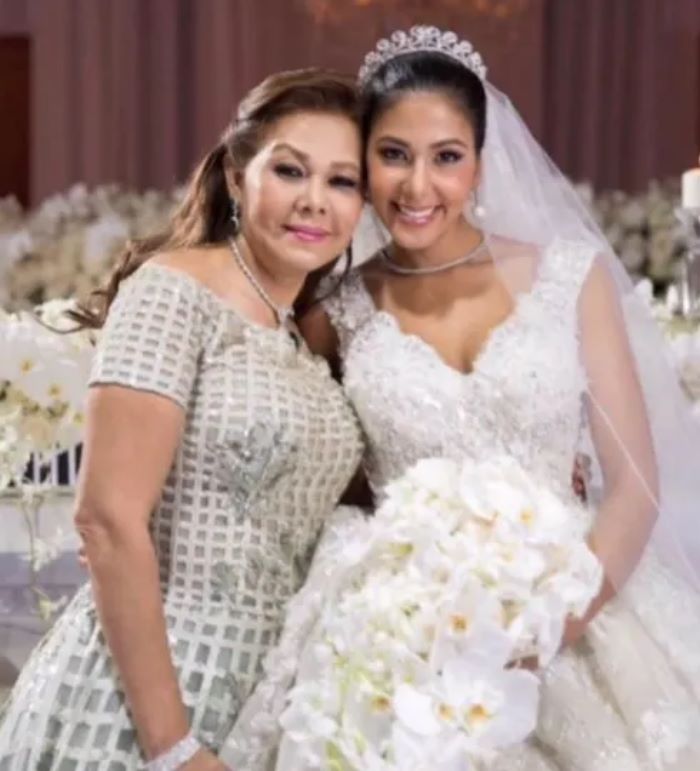
Isabel Rangel Barón
Business in Panama
The months of emergency due to Covid-19 in Latin America detected a multitude of irregularities in the purchases of medical equipment and supplies countries made to confront the new coronavirus pandemic SARS CoV-2. One such case concerns artificial ventilators or respirators, which have proven central to the strategy of saving patients with respiratory complications. One of the stories of questionable acquisitions, dubious negotiation, and equipment performance failures connects Panama with Venezuela.
Three Venezuelan brothers managed to negotiate with the Panamanian state to equip hospitals in that country with dozens of ventilators due to the Covid-19 emergency. Carlos, Roberto, and Rommel Bogarin Rangel, with their company Primo Medical Group, became one of the thirteen suppliers for the Ministry of the Presidency of the Isthmus country. In March of this year, they signed an agreement for 2.3 million dollars to provide 53 units for both intensive care and non-invasive respiratory assistance, of which only 32 units have confirmed delivery.
According to an investigation initiated in May by the newspaper La Prensa de Panama, the letter of commitment signed with the State to provide the equipment and receive payment later, would not have stood out had it not been for the history of Primo Medical Group. However, it became evident that it was a company with no track record in the medical equipment sector in Panama (it had only sold disposable products); unknown to other companies in the field, with no records of medical equipment imports in the last ten years, according to Panama customs authority data, and no prior sales of medical supplies to the Panamanian government. There was no previous experience that would allow concluding that this company would be a good supplier, but they were the only ones with equipment available for immediate delivery, according to an investigation by La Prensa de Panama and Armando.info.
What was present on their website was reference to being part of an “important family business group that has been marketing and distributing medical supplies of the highest quality since 1980.” Primo Medical Group is currently run by the third generation of a family whose genealogy roots trace back to Maracaibo, a city in western Venezuela and the capital of Zulia state.
The Rangel surname of these young men comes from the Rangel Barón family, another group of brothers (their uncles) known in Venezuela for revelations made by the press since 2015. According to investigations, the Rangel Barón family operates a network of companies dedicated to medical equipment and supplies and dialysis centers, of which Continental Medica heads, having been regularly favored with hundreds of contracts from the Instituto Venezolano de los Seguros Sociales (IVSS) for years, and with allocations worth millions of preferential dollars from the former Comisión Nacional de Administración de Divisas (Cadivi).
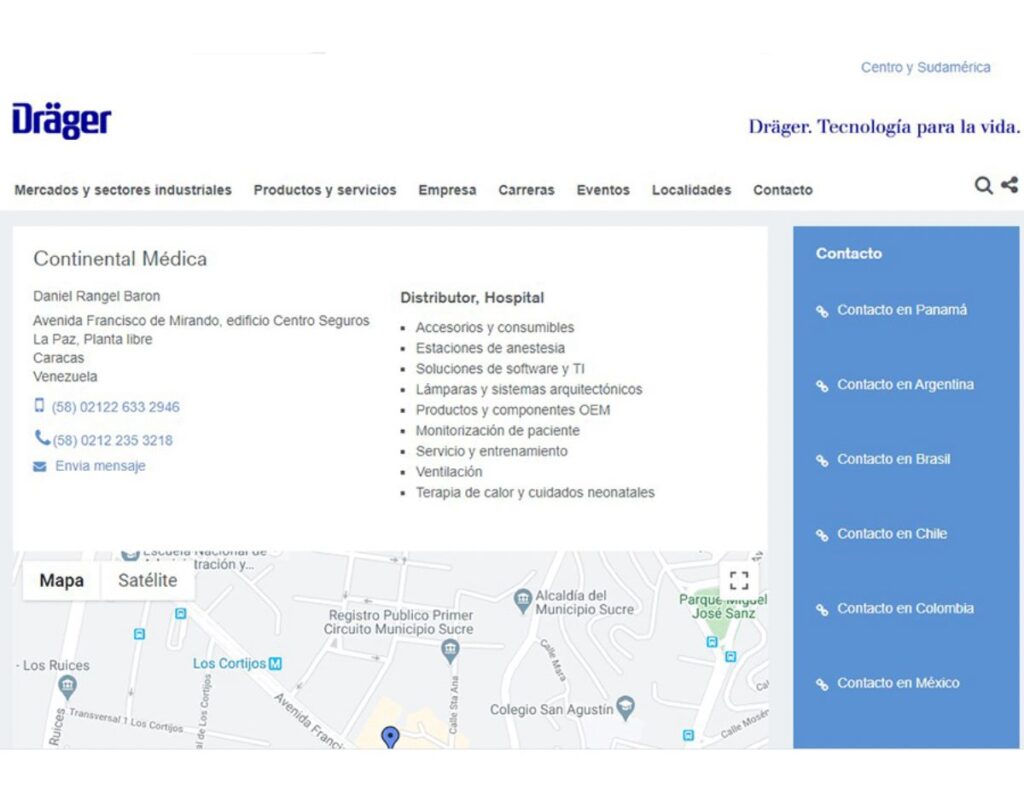
The ventilators delivered by Primo Medical Group to the Panamanian government bear the German brand Dräger. However, they came with a series of surprises that were anything but consistent with the image of quality of German engineering: they arrived damaged, with incomplete parts, with manufacturing dates earlier than stated by the supplier. The company itself claimed they were 2015 equipment, but in reality, they were from 2013 and 2014. The software was outdated.
Reports from four hospitals in Panama that received this equipment, and summarized in six letters sent to the Ministry of Health, detail the failures: several ventilators arrived without compressors or humidifiers, with air and oxygen hose connectors incompatible with those used in some receiving health centers, ventilation circuits with expiration dates between 2015 and 2017, missing intubation valves, unreliable internal batteries due to their years of manufacture, and even one arrived with a broken screen and another with a damaged card, among other ruinous details.
The reviews concluded that the equipment had remained “too long in storage,” which would explain their suboptimal and, therefore, risky conditions for any critically ill patient. No respirator was updated, nor was Primo Medical Group an authorized representative of the Dräger brand in Panama, as the German parent company clarified at the time. Thus, the origins of those Dräger ventilators that managed to quote the state remain a mystery.
While it is clear that Primo Medical Group was not an approved distributor of Dräger equipment in Panama, there is a striking coincidence that the Rangel Barón did have those rights, but only for Venezuela. The company Continental Medica, owned by Daniel Rangel Barón, uncle of the Bogarin Rangel brothers, is the authorized representative of the German brand for the Venezuelan market.
This is one of the coincidences that connect the Venezuelan Bogarin Rangel brothers with the Rangel Barón brothers, their direct uncles on their mother’s side.
It should also be noted that Roberto and Rommel Bogarín Rangel are listed as partners of their aunt, Isabel Rangel Barón, in a private foundation in Panama called Alastor; they appear as advisory directors, with her as president. In Venezuela, Isabel served as vice president of Continental Medica while her brother Daniel Rangel Barón was president, at least until 2015, when allegations about the company surfaced. She was also the point of contact for clients, as can be seen in the National Contractors Registry (RNC). Currently, only Daniel remains on the board.
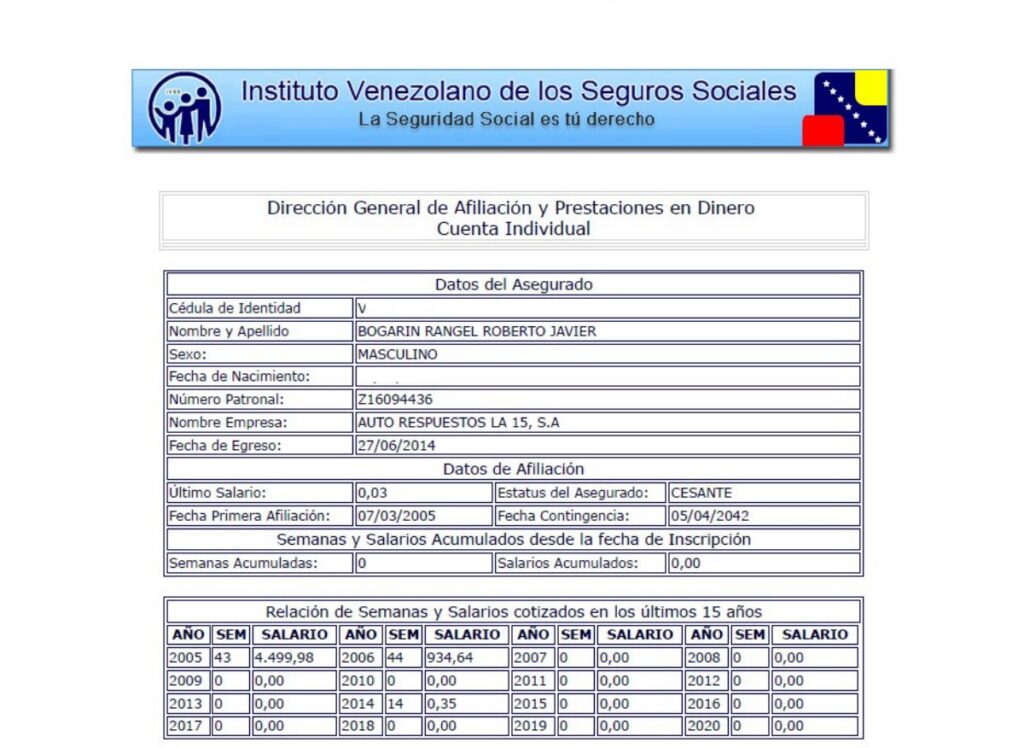
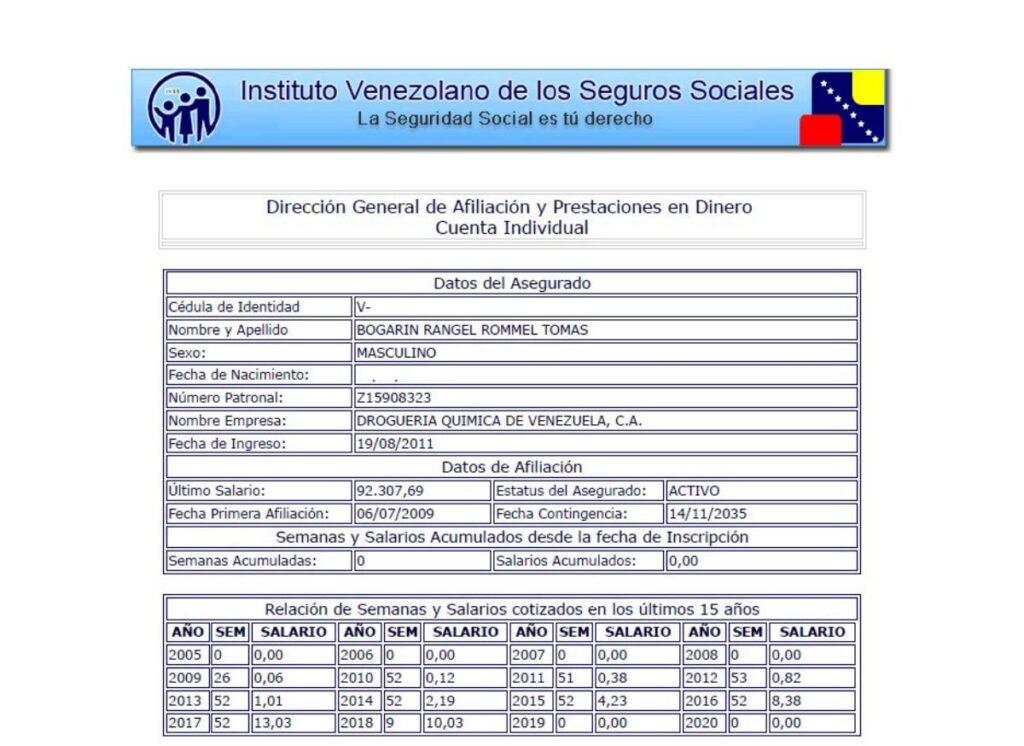
The Rangel Barón family, owners of a network of 19 companies in Venezuela and another 28 abroad – ten of them in Panama – received over 440 million dollars in preferential funds for the purchase of medical supplies for the Instituto Venezolano de los Seguros Sociales. Eight of the 19 companies of the Rangel Barón family were government contractors, violating the Public Procurement Law, according to an investigation published by the Runrunes site in November 2015.
Only one of those companies, Continental Medica, received more than 330 million dollars in preferential funding and hundreds of contracts with IVSS, for providing clinical beds, anesthesia machines, cardiac monitors, and vital signs monitors, among a wide variety of medical equipment and surgical supplies, as can be verified in the RNC.
Despite this public exposure associated with alleged irregularities, Continental Medica remains enabled to contract with the Venezuelan state. It has been reported that during these pandemic months, it offered Dräger respirators to various clinics in Caracas, including IVSS, but they were rejected for being older models from 2012. This information was neither confirmed nor denied by the company when consulted.
On the contrary, the management of Continental Medica clarified in a letter to Armando.info that it has no pending “investigation or any processes with administrative bodies or the justice system,” and that it carries out all its activities in compliance with Venezuelan laws.
The last ventilator import carried out by this company was in 2012, according to their spokespersons. In their communication, Continental Medica’s board also denied being a supplier to Primo Medical Group or negotiating any sale of the Dräger equipment, which they distribute in Venezuela, intended for the Panamanian market. They also denied any business relationship with brothers Carlos, Roberto, and Rommel Bogarin Rangel.
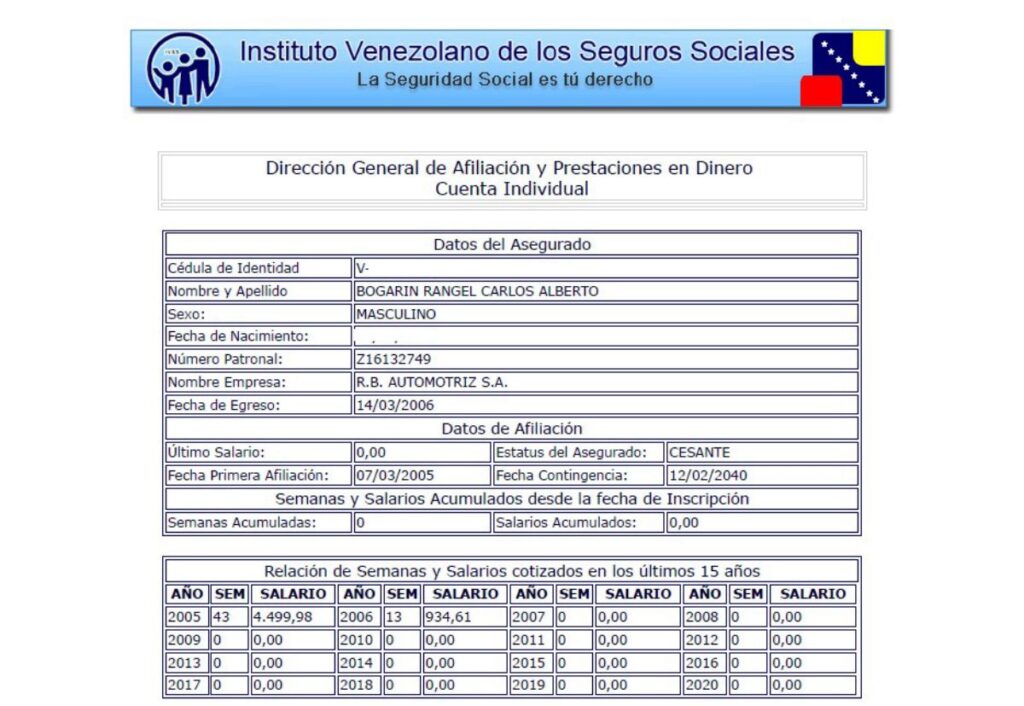
But somehow the blood relation ultimately becomes a business link: the father of the young men doing business in Panama, Rommel Bogarin Grau, became the “commissioner” of Equipos Médicos Alfamed, Casa de Representaciones Omega Salud, Corporación Hospitalaria del Zulia, companies from the conglomerate of 19 that the Rangel Barón manage.
In this porcelain crucible, other pieces also come together. Besides Primo Medical Group Corp, established in 2017 to engage in the medical supplies and hospital disposables business, there is Primo Medical Group HK Panama Corp, a company that changed its name from Boga Group Corp since its creation in 2015 until May 2019, according to the Public Registry of Panama. That year, not only did it change its name, but it also ceased to deal with the buying, selling, and distribution of vehicle parts.
Its owners and representatives, Carlos and Roberto Bogarin Rangel, worked in automotive and spare parts companies in Zulia state years ago – before moving to Panama – as confirmed in the Venezuelan social security records and as attested by their circle of friends through recollection.
Rommel Bogarin, the older brother of Carlos and Roberto, is also a member of the board in both Primo companies.
In Venezuela, Rommel Bogarin Jr. still appears as an active worker at Droguería Química de Venezuela, Droquiven. This company is responsible for distributing, representing, and selling general products for equipping health centers and laboratories, as well as importing and exporting medical equipment, providing services, and maintenance. According to the records, he is its executive director and major shareholder. Additionally, some time ago, between 2006 and 2007, he served as executive director of another health sector company called Corporación Hospitalaria del Zulia. Both were contractors for IVSS and the Ministry of Health, supplying medical-surgical supplies and medications.
In contrast, his younger brothers show no trace of ever being in the health business in Venezuela. Carlos Bogarin Rangel was also a contractor for the Venezuelan state but with a company in the petrochemical, coal, and industrial sector that provided services to the oil company Pdvsa. Carlos was part of the board of Petrolera Social (P&S) as managing director while his uncle, Daniel Esgardo Rangel Barón, was president, at least in 2007 when there is a record in the National Contracting System. Along with his brother, Roberto Bogarin Rangel, he shared a partnership in a computing company.
After the shortcomings of the equipment delivered by Primo Medical Group were reported, the Rangel Bogarín company was forced to sign an agreement with Dräger de Panama to repair the equipment, update them, and provide missing parts. They also committed to complying with a series of requirements ranging from a three-year warranty to submitting the manufacturer’s certification of availability of spare parts for at least seven years.
Calculating the cost of the 53 ventilators that the Venezuelan traders quoted to the Panamanian state at 2.3 million dollars, each unit would be sold at an average of 43,000 dollars, a high price compared to the market prices in Panama. The Dräger company in Panama itself offers ventilators ranging from 6,000 to 17,000 dollars, while the same models that Primo Medical Group included in their offer are available online at even lower prices: between 17,000 and 32,000 dollars.
Even more, considering that these respirators dated back to 2013 and 2014, they should have approximately a 30% discount, commented two medical equipment traders in Panama.
All indications suggest that the Venezuelan Bogarín Rangel brothers wanted to oxygenate their finances by acting as suppliers to the Panamanian government, something their relatives in the Rangel Barón family have known how to do on Venezuelan soil.
Comments on social media in 2020 claimed that Isabel Rangel Barón had allegedly died from cancer due to stress caused by investigations the US authorities maintained against her. It was also claimed that Isabel Rangel Barón had purchased a house in the luxurious Country Club neighborhood of Caracas, which belonged to the controversial businessman Carlos Kaufman, but later, Isabel’s daughter supposedly put it up for sale.
Nevertheless, there is no official confirmation of the businesswoman’s death, and even today on Twitter “@DeGuisos”, an account attributed to “Isabel Rangel Barón,” publishes cooking recipes under her name and the title “Isabel’s Recipes,” as if trying to obscure the truth about her business dealings.
